Holocaust Memorial Day 2024
Holocaust Memorial Day 2024
- Holocaust Memorial Day 2024 - Fragility of Freedom
- Newcastle's Holocaust Memorial Day programme
- Take part in Holocaust Memorial Day
Holocaust Memorial Day 2024 - Fragility of Freedom
The theme for Holocaust Memorial Day for 2024 is 'Fragility of Freedom. There is always a set of circumstance that occurs or is created that allow a genocide to happen. Regimes build a climate where they can remove the freedoms of the people they are targeting.
They don't just take the freedoms of the individuals or groups they are targeting. They also restrict the freedoms of people around them. They create a culture of fear where even those who aren't targeted are too frightened to challenge the regime or it's behaviours.
Freedom is fragile and it cannot be taking for granted. Examples of freedoms that are targeted during genocide include freedom of self-identity, freedom of religion, freedom of movement, freedom of expression and, finally, freedom to live.
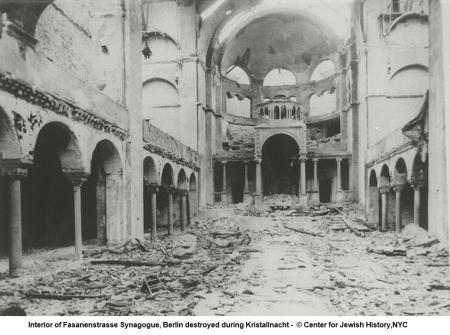
Perpetrators often deliberately conceal their actions to mislead those they are targeting to keep them calm and prevent revolts. They create a false sense of freedom.
The gates at several concentration camps welcomed prisoners with the now infamous slogan 'Arbeit Macht Frei' which means 'work gives you freedom.
The truth was very different. The reality, in every genocide, is that people are killed for who they are. For their faith, their ethnicity, their gender or their sexuality.
"With a heavy heart I agreed to be sterilised for a second time. This was the cruellest thing I ever had to endure. I will never be able to forget that." - Franziska Mikus
Under the Law for the Prevention of Hereditarily Diseased Offspring more than 400,000 people were sterilised by Nazis between 1933 and 1939 due to alleged genetic diseases. Franziska Mikus was one of more than 10,000 deaf victims who's freedom to have children was stolen.
But in every genocide there are people who risk their own freedom to help others. People who recognise the Fragility of Freedom and who stand up to the persecutors to preserve help preserve the right to freedom.
And today we can all play a part by challenging the prejudice, discrimination and hatred that still exists to protect our freedoms and help create a better world for future generations.
Newcastle's Holocaust Memorial Day Programme
Groups. communities and organisations, with support from the council, have once again created a moving tribute to those who lost their lives or who suffered in the Holocaust and the genocides that followed. All the events in our programme are based on the theme of Fragility of Freedom.
- A Night of Fear - Exhibition
- Brundibár Arts Festival
- Brundibár Arts Festival: Music from Another World - Concerts
- Persecution of the Roma people - Launch event
- Persecution of the Roma people - Exhibition
- Fragility of Freedom - Talk and event
- Survivors: Children's lives after the Holocaust - Talk
- Holocaust Memorial Archives Tour
- A Night of Fear and Freedom - Live event
- What is a Holocaust witness - Lecture
- Flashes of Memory - Exhibition
- A Child in Striped Pyjamas - Opera
- My Father's Story - Talk
- A night of fear and freedom - Radio broadcast
- Roma Holocaust - Commemorative event
- Brundibár Arts Festival: A Homage to the musicians of the Warsaw Ghetto - Jazz event
- Brundibár Arts Festival: Cobweb Orchestra - Concert
- Holocaust Memorial Day Commemorative Event
- Brundibár Arts Festival: Closing concert
- The Together Plan UK: Making history together - Exhibition
- The Forgotten Holocaust - Event
- The Rescuers: Heroes of the Holocaust - Film
A Night of Fear - Exhibition
Thursday 18 January to Thursday 25 January - Bewick Hall, Newcastle City Library
Skimstone Arts presents a moving exhibition of songs, poems, photographs and drawing along with fragments of real stories all created by artists, photographers, musicians and young people living in the North East of England.
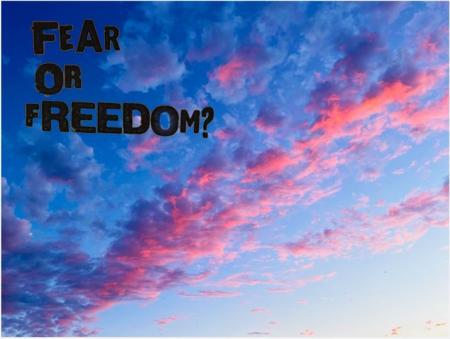
Contributors include those with lived experience of war in Bosnia, Ukraine, Kurdistan Iraq, Guatemala, Poland, Ethiopia, Afghanistan, Iran and Holocaust survivors.
Skimstone Arts have worked with the above diversity of groups and individuals in a series of story sharing, song writing, recording, creative and reflective sessions including to develop an emotional and thought-provoking exhibition based on the Holocaust Memorial Day 2024 theme of Fragility of Freedom.
The exhibition was made in partnership with Theresa Easton, Fine Arts Department at Newcastle University.
Tickets: No booking is required for this free event.
Brundibár Arts Festival
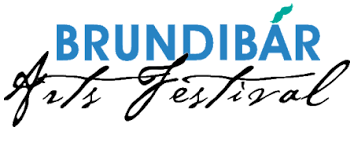
The Brundibár Arts festival is an annual programme of events that showcases little known music written during the Holocaust. It was launched in 2016 as the first annual festival of its kind. The festival takes it's name from the children's opera "Brundibár", meaning bumblebee, which was first performed by children in Theresienstadt concentration camp in 1943.
Brundibár Arts Festival: Music from another world
The first two concerts in the 2024 festival features the work of often forgotten Polish Jewish composers who suffered at the hands of the Nazis.
Opening Concert: Saturday 20 January, 7.30pm - Kings Hall, Newcastle University
Programme includes Szpilman's Suite for Piano, Laks' Quartet no. 3 and Tansman's Pour les Enfants
Second Concert: Sunday 21 January, 7.30pm - Kings Hall, Newcastle University
Programme includes Rathaus' Quartet no. 4, Fitelberg's Nacht Music and Weinberg's Piano Trio
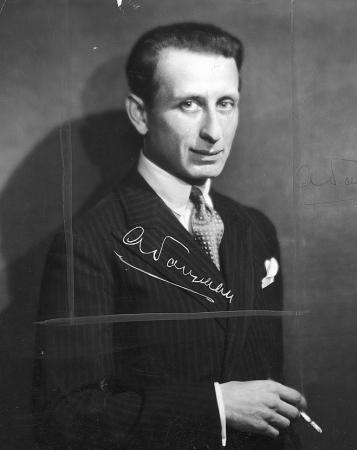
Alexandre Tansman was a composer, pianist and conductor. He left Poland for Paris in 1919 but maintained his Polish heritage. In 1938, he was granted French citizenship after marrying French pianist Colette Cras.
Alexandre, his wife and two daughters were forced into exile after they were named on Goebbels' black list. Two days before the German occupation of Paris the family fled, hiding in Nice for over a year. In 1941, with support of a committee headed by Charlie Chaplin and help from British born composer Leopold Stokowski they secured safe passage on a ship to the United States. After the war the family returned to Paris to find the Nazis had ransacked their home.
Karol Rathaus was born in Tarnopol, part of modern day Ukraine, in 1895. He began studying music in the early twentieth century but in 1914 he was enlisted in the Austrian cavalry. After the war he returned to Vienna but was plagued by financial issues and flare-ups of tuberculosis, which he contracted during his service. Despite this he became recognised as a master composer.
The rise of the Nazis forced him to move from Berlin to Paris in 1932. Two years later he was forced to flee to London and onto New York. Unable to find steady employment he accepted the post of Professor of Composition at Queen's College in Flushing, New York. He continued to compose but most of his time was dedicated to creating educational music for his students.
The years of exile, combined with physical and emotional ill health, took their toll. Resigned to never again reaching the prestige he achieved before the war he devoted his life to his work as an educator before dying in 1954 aged just 59. Many of his students never knew about Karol's success until after he died.
Mieczyslaw Weinberg was a Polish born composer. When war broke out in 1939 he was forced to turn down the chance to study in the USA and fled to Minsk to escape Nazi persecution. His parents and sister, who stayed in Warsaw, all lost their lives in Trawniki concentration camp. In 1941, Mieczyslaw was forced to flee again when the Germans arrived in Russia.
Even after the war Mieczyslaw couldn't escape persecution. On Stalin's orders his father-in-law was murdered and in 1953 Mieczyslaw was arrested and charged with plotting to establish a Jewish republic in Crimea. The charge carried a death sentence but fortunately he and other prisoners were released when Stalin died later that year.
Jerzy Fitelberg was born in Warsaw in 1903, the son of the conductor Gregorz Fitelberg. He studied composition in Belin where he soon enjoyed success with several of his works, including two violin concertos, published. In 1933 he went into exile in Paris to escape the Nazis before fleeing to New York in 1940. Despite numerous awards he never established a foothold in the post-war music scenes and he and his works fell into oblivion after his death in 1951.
Szymon (Simon) Laks was a Polish Jewish composer and violinist who became the leader of the prisoners' orchestra at Auschwitz-Birkenau. Although born a Russian he took Polish citizenship in 1924 before studying in Vienna and Paris. He was known for creating piano accompaniments for silent films.
In 1941, Simon was arrested by German authorities and sent to the Pithiviers internment camp before being transported to Auschwitz in 1942. As a musician he was treated better than many in the camp and became head of orchestra at the concentration camp. In October 1944, Simon was transferred to the Dachau concentration camp where he remained until it was liberated in 1945.
"Far from being a medium of resistance, music was a supplementary torture instrument, an instrument of total domination. Music aggravated the detainees, physically and morally" - Szymon Laks, reflecting , after the war ended, on the role music played in the exterminations.
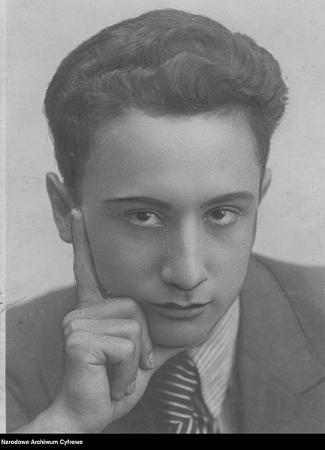
Wladyslaw Szpilman was a Polish pianist and Holocaust survivor. He is best known as the central character in the 2002 film The Pianist which is based on his life during the occupation of Warsaw and the Holocaust.
Wladyslaw, a popular performer, was confined to the Warsaw Ghetto after the German invasion of Poland. He escaped deportation to Treblinka with the rest of his family when a member of the Jewish Policy helping with the deportations pulled him from the line. His family were murdered in the camp.
He worked as a labourer in the ghetto and helped to smuggle in weapons that would be used in the Warsaw Uprising. He left the ghetto in February 1943 just months before it was destroyed following the uprising. He found places to hide in Warsaw and survived with the help of friends and other musicians
In November 1944 a German officer, Captain Wilm Hosenfeld, found him in an abandoned building and told him to play the piano in the building. To Wladyslaw's surprise Wilm, who detested Nazi policies, brought him food and supplies, hiding his whereabouts until the Germans left the City. He survived the Holocaust and returned to his music career.
Wilm, who was ashamed of what the Nazis were doing had helped other Polish people, was not so lucky. After the war Wilm was arrested by the Russians and sentenced to 25 years hard labour. He wrote to his wife asking her to contact the people he had saved for help to secure his release.
In 1950 Wladyslaw, who had learned of Wilm's fate, begged Jakub Berman, head of the Polish secret police, to help to set Wilm free. Berman insisted he couldn't do anything. Wladyslaw, who knew Berman was receiving power and money from Stalin, never believed what he was told. Two years later Wilm died in a Soviet prison camp from a thoracic aorta possibly sustained during torture.
Wladyslaw, and after his death in 2000, his son, Andrzej campaigned for Wilm's bravery to be recognised. In 2007, Wilm was posthumously awarded the Commander's Cross of the Oder of the Polonia Restituta by the Polish President, Lech Kacynski. And finally, in 2008, Yad Vashem, recognised Wilm Hosenfeld as Righteous Among the Nations, an award given to non-Jews who risked their own lives to save Jews from extermination by the Nazis during the Holocaust.
Tickets: Find out more and purchase tickets at www.brundibarartsfestival.com
Persecution of the Roma people - Launch
Monday 22 January, 11am - West End Customer Service Centre
Roma ACCESS CIC aims to inform and educate people about Roma culture and to commemorate the victims of the Roma Holocaust through public events. This launch event will include guest speakers, guided tours of the exhibition (see below) and a question and answer session.
Tickets: Booking is not required for this free event but space is limited so please contact access_org@yahoo.com to confirm your attendance
Persecution of the Roma people - Exhibition
Monday 22 January to Friday 26 January - West End Customer Service Centre
Historians estimate that between 200,000 and 500,000 Roma and Sinti people were murdered by the Nazis and their collaborators with many more imprisoned, used for forced labour and subjected to forced sterilisation and medical experiments.
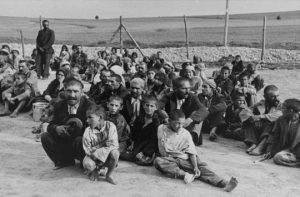
But despite the high death toll awareness of the persecution of Roma people is low and little wonder the Roma Holocaust is often referred to as the 'Forgotten Holocaust.'
In 1936 the Nazis decided to clear Berlin of Roma and Sinti people before the city hosted the Olympic Games with many imprisoned or moved to camps. The genocide intensified at the start of World War 2 as Roma people were deported to ghettos and concentration camps.
At Auschwitz-Birkenau they were sent to a specific camp known as the 'Gypsy Camp'. Thousands of Roma and Sinti people were held in the camp. On 2 August 1944 the 'Gypsy Camp' was liquidated. Thousands of men, women and children were murdered in the gas chambers wit the remaining prisoners deported to Buchenwald and Ravensbruck concentration camps to be used for forced labour.
This moving exhibition which offers guided tours aims to educate and inform the public so that the the Roma victims of the Holocaust are no longer forgotten.
Tickets: Booking is not required for this free event. Guided tours: Advance booking is essential. To reserve a place on a guided tour please email access_org@yahoo.com
Fragility of Freedom - Exhibition and event
Tuesday 23 January, 5.30pm - Bewick Hall, Newcastle City Library
This exhibition and event uses recent examples of repression, persecution and genocide in Bosnia and Iran to illustrate the Fragility of Freedom.
The event where will use music, poetry and visual presentations to explore genocide the 1995 genocide in Bosnia and the uprising and repression in Iran in 2022. It will reflect on how Newcastle people responded to the atrocities by welcoming those fleeing persecution to the city.
Paisa Panahi, whose exhibition Woman, Life, Freedom in Iran, will also speak at the event.
Tickets: Booking is not required for this free event.
Survivors: Children's lives after the Holocaust - Talk
Wednesday 24 January, 2pm - Online with a British Sign Language interpreter
Children who survived the Holocaust often can't remember much about life before the war. With memories that are vague or non-existent one question they often ask is "How can we make sense of our lives when we don't know who we are or where we come from?"
In her award winning book Survivors, Durham University's Professor Rebecca Clifford, follows the lives of 100 Jewish children from the ruins of conflict, through their adult life and into old age.
In this online talk Professor Clifford will talk about the research she used when writing her book and reflect on the stories she was told.
Tickets: Booking is essential for this free live streamed event. To find out more or to reserve a space please visit https://discoverymuseum.org.uk/whats-on/holocaust-memorial-day-talk-online.
Holocaust Memorial Day Archives Tour
Wednesday 24 January, 10am to 12.30pm - Discovery Museum
Join members of the archives team for a tour behind the scenes to see up close some of the fascinating material held by the archives relating to the Jewish communities of North East England,
Tickets: Booking is essential for this free event. For more information or to book place visit https://discoverymuseum.org.uk/whats-on/holocaust-memorial-day-archives-event
A night of fear and freedom - Live event
Wednesday 24 January, 12pm, 1.10pm and 2.20pm - Bewick Hall, City Library
Thursday 25 January, 12pm, 1.10pm and 2.20pm - Cinema Space, The NewBridge Project
Join Claire Webster Saaremets (Artistic Director - Skimstone Arts), Ako Ismail (Associate Artist - Skimstone Arts) and others to listen to live and recorded performances of true stories, new and original music and poetry.
This powerful and uplifting experience highlights stories from diverse contributors about ho freedoms have been lost, stolen or found.
Each event lasts approximately 40 minutes with the opportunity to reflect and respond after. The events are suitable for people aged 12+.
Tickets: Booking is recommended for these free events. To find out more and reserve a place visit https://www.skimstone.org.uk/a-night-of-fear-and-freedom
What is a Holocaust witness? - Lecture
Thursday 25 January, 5.15pm - Bewick Hall, City Library
Tickets: Booking is essential for this free event. To reserve a place visit https://www.eventbrite.co.uk/o/newcastle-libraries-3037748424
Flashes of Memory - Exhibition
Thursday 25 January to Thursday 8 February - Newcastle City Library
Tickets: Booking is not required for this free exhibition.
A child in striped pyjamas - Opera
Thursday 25 January, 7.30pm - Gosforth Civic Centre Saturday 27 January, 8pm - Gosforth Civic Centre
Tickets: Find out more and purchase tickets at www.brundibarartsfestival.com
My Father's Story - Talk
Friday 26 January, 1.00pm - The Lit and Phil
Marta Josephs, a retired chemistry teacher, believes she always knew her father was a Holocaust survivor. But it wasn't until the age of 55 that she heard is story after he son James asked him a question one Passover. Join us to hear about his life.
Tickets: Booking is recommended for this free event. To reserve a place please visit https://www.litandphil.org.uk/events/marta-josephs-my-fathers-story/
A night of fear and freedom - Radio broadcast
Friday 26 January, 12.30pm - Online
Tickets: No booking is required for this free event. Tune in to Skimstone Radio at www.skimstone.org/skimstone-radio to listen live.
Roma Holocaust - Commemorative event
Friday 26 January, 5pm - West Fifteen Business Centre
Tickets: Booking is not required for this free event but spaces are limited.
Brundibar Arts Festival: A homage to the musicians of the Warsaw Ghetto - Jazz event
Friday 26 January, 7.30pm - The Globe, Newcastle
Tickets: Find out more and purchase tickets at www.brundibarartsfestival.com
Brundibar Arts Festival: Cobweb Orchestra - Concert
Saturday 27 January, 1pm - Jesmond Reform Church
Tickets: Find out more and purchase tickets at www.brundibarartsfestival.com
Holocaust Memorial Day Commemorative Event
Sunday 28 January, 2pm - Invite only
Tickets: This event is strictly be invitation only. Key elements of the event will be recorded and available on YouTube via the Representative Council's website. We will also publish the video on this page.
Brundibar Arts Festival: Closing concert
Sunday 28 January, 7.30pm - Jesmond Reform Church
Tickets: Find out more and purchase tickets at www.brundibarartsfestival.com
The together plan UK: Making history together - Exhibition
Monday 29 January to Friday 2 February - Bewick Hall, Newcastle City Library
Tickets: To find out more about this free event visit
http://www.thetogetherplan.com/get-involved/our-events/holocaust-memorial-day-newcastle-city-council
The forgotten Holocaust - Event
Wednesday 31 January, 3.30pm to 5pm - Bewick Hall, Newcastle City Library
Tickets: To find out more and book tickets for this free event visit
https://thetogetherplan.com/events/the-forgotten-holocaust/
The Rescuers: Heroes of the Holocaust - Film
Thursday 1 February, 4.45pm to 6.50pm - Bewick Hall, Newcastle City Library
Tickets: To find out more and book tickets for this free event visit https://thetogetherplan.com/events/screening-of-the-rescuers/
Take part in Holocaust Memorial Day
Holocaust Memorial Day takes place on 27 January every year and there are lots of different and meaningful ways you can play a part on or around the day. From schools and libraries to workplaces and community centres, Holocaust Memorial Day activities take place in a range of diverse settings. There are also a range of different ways that you can get involved including:
Holocaust Memorial Day online
There are lots of ways to get involved in Holocaust Memorial Day online or using your social media including watching the Holocaust Memorial Day 2024 UK ceremony. By becoming part of the online conversation you can help spread messages of understanding and tolerance.
To find out more about taking part in Holocaust Memorial Day online visit https://www.hmd.org.uk/take-part-in-holocaust-memorial-day/marking-holocaust-memorial-day-online/
Organise an activity
Every year local Holocaust Memorial Day activities take place across the UK. They bring people from all backgrounds together to learn more about the Holocaust, Nazi persecution and the genocides that followed. They also offer an opportunity for people to consider how we can all make our society a better place that is free from hatred, prejudice and discrimination.
Holocaust Memorial Day Trust supports individuals and organisations to mark Holocaust Memorial Day by providing free resources, historical information and ideas for how to get involved.
Form more information visit https://www.hmd.org.uk/take-part-in-holocaust-memorial-day/organising-an-activity/
Light the Darkness
Every year people from across the UK and around the world put a lit candle in the window to Light the Darkness.
.png)
In Newcastle the Civic Centre will be lit as residents from across the city light candles in memory of victims of the Holocaust and other genocides, in tribute to the survivors and to take a stand against the prejudice, discrimination and hatred that still exist today.
Did you know?
You can join people across the nation to watch curated moments from the Holocaust Memorial Day 2024 UK Ceremony before taking part in the Light the Darkness national moment at 8pm on Saturday 27 January.
To find out more and to register to attend visit https://www.hmd.org.uk/take-part-in-holocaust-memorial-day/ukhmd/
If you would like to give us feedback on our website, please complete this short online form.